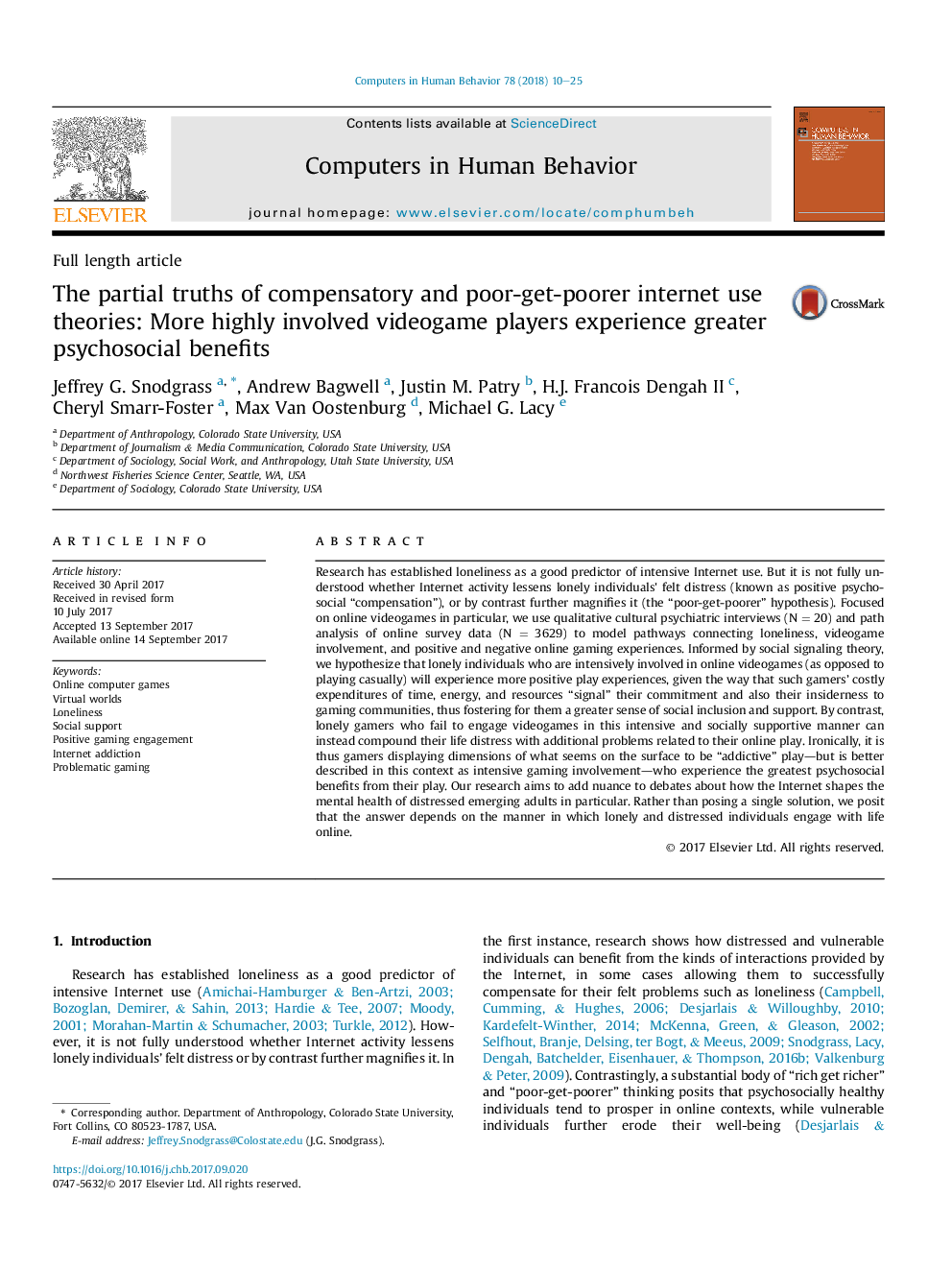| کد مقاله | کد نشریه | سال انتشار | مقاله انگلیسی | نسخه تمام متن |
|---|---|---|---|---|
| 4936985 | 1434613 | 2018 | 16 صفحه PDF | دانلود رایگان |
- Considering videogame involvement helps distinguish healthy from problem play.
- More involved gamers “signal” greater passion, thus winning social support.
- More intensive videogame involvement psychosocially compensates for loneliness.
- Lonelier gamers playing casually suffer greater adverse gaming-related consequences.
- Study combines cultural psychiatric interviews with a path analysis of survey data.
Research has established loneliness as a good predictor of intensive Internet use. But it is not fully understood whether Internet activity lessens lonely individuals' felt distress (known as positive psychosocial “compensation”), or by contrast further magnifies it (the “poor-get-poorer” hypothesis). Focused on online videogames in particular, we use qualitative cultural psychiatric interviews (NÂ =Â 20) and path analysis of online survey data (NÂ =Â 3629) to model pathways connecting loneliness, videogame involvement, and positive and negative online gaming experiences. Informed by social signaling theory, we hypothesize that lonely individuals who are intensively involved in online videogames (as opposed to playing casually) will experience more positive play experiences, given the way that such gamers' costly expenditures of time, energy, and resources “signal” their commitment and also their insiderness to gaming communities, thus fostering for them a greater sense of social inclusion and support. By contrast, lonely gamers who fail to engage videogames in this intensive and socially supportive manner can instead compound their life distress with additional problems related to their online play. Ironically, it is thus gamers displaying dimensions of what seems on the surface to be “addictive” play-but is better described in this context as intensive gaming involvement-who experience the greatest psychosocial benefits from their play. Our research aims to add nuance to debates about how the Internet shapes the mental health of distressed emerging adults in particular. Rather than posing a single solution, we posit that the answer depends on the manner in which lonely and distressed individuals engage with life online.
Lonely gamers' more highly involved play produces positive social and experiential outcomes, as well as decreased disordered “addictive” gaming (IGD-9).71
Journal: Computers in Human Behavior - Volume 78, January 2018, Pages 10-25
